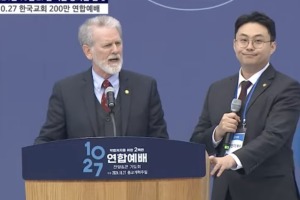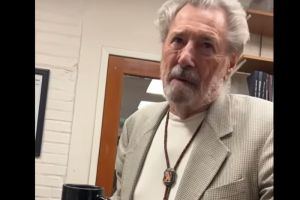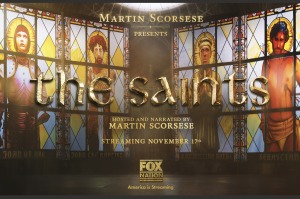The Gospel Can Transform Culture No Matter How Dark the Times, Os Guinness Says in New Book (CP Interview)
CP: Is that why you think we could be on the verge of a new type of golden age for the Church? Because you see a similarity with the very dark times right before the Reformation and what we're going through now?
Guinness: Well, it's true that the darkest times are always just before the dawn. And that's true of every single revival. Five minutes before God speaks, everything looks bleak. Five minutes after He speaks, everything has changed. That's true of every revival.
But my point is, looking back through the Scriptures and history, how is it we can have confidence in the Gospel, and that's what the book is about.
Our Lord calls us to be in the world, but not of it. When we're in it and of it, we're weak. When we're not in it, we're weak. If we're in it, but not of it, there is a cultural tension with the world that is creative and culture shaping.
Now that requires certain simple things. It requires engagement, there's no option there, every follower of Jesus should be engaged. But it requires discernment. In the world but not of it. We've got to know when the world is beneficial, when it's harmful, when it's somewhat neutral, and really be discerning.
Many American Christians are not discerning about the culture. They can smell a relativist or a secularist at 100 yards, but when consumerism gets us they're not clued up on any of those things, and the American Church is profoundly worldly. It's captive to the culture. So we need reformation and revival.
CP: You say that Christians should be engaged with the culture but making a "Christian culture" should not be their goal. Why is that?
Guinness: No, I didn't say no Christian culture. In the book I say there is no one Christian culture. In other words, where the Bible does not tell us what to do, there is no absolute rule — there's no biblical retirement plan, there's no biblical economic system, there's no biblical choice between, say, wise aristocracy or democracy. The Bible doesn't talk about things like that. It uses principles.
That means you can say certain systems are not Christian, because they contradict Christian principles. You can never say one alone is Christian, because there might be many that are Christian. So there is no one Christian culture.
There is no "Golden Age" in the past. Catholics loved the Middle Ages, the ages of faith. Many Reformed people love the Reformation. Evangelicals love the 18th century revivalism, the abolition of slavery. Many Pentecostals love the Azusa Street Revival. But they are not the Golden Age. They all had blind spots as well as incredible blessings. The Golden Age is ahead when our Lord returns and the last tear is wiped away and justice and shalom is truly restored. Our Golden Age is never behind, it's ahead.
CP: A theme you repeat throughout the book is that God's work must be done in God's ways. Do you believe doing God's work in worldly ways is one of the primary failures of the Church?
Guinness: One of them. When you look back in history there are three basic things: secularization, corruption, and division.
But if you take examples of the Lord's work in the world's way, take the Christian Right. They were fighting the Lord's work — life, marriage, et cetera. But, our Lord called us to love our enemies. We have enemies and the Christian Right demonized them, stereotyped them, and they've got a reputation now for legalism, judgmentalism, all sorts of things, which our Lord never had. And we've got to repent and do His work in His way.
You look at someone like William Wilberforce, he truly loved his enemies. And he had them — the Royal family, vested interests in trade, and so on. He was twice mugged in the streets, viciously, set upon by his enemies, but he reached out to them in love.
One day one of his enemies died and Wilberforce immediately sought the man's widow and gave her a pension. He cared for them. And as Lincoln said, the best way to defeat an enemy is to make him your friend. And Wilberforce did that, loving people in Christ, and at the end of his life, even his worst enemies had grudging admiration for him. We should be like that today — truly doing the Lord's work in the Lord's way, not the world's way.
CP: Do you think it will take a while to undo the damage done by the Christian Right?
Guinness: Sadly. Although, many people, I think, have looked at the statistics wrong. They're talking about massive defections of the Millennials from Evangelicalism in reaction to the Christian Right. I think what has really happened is the defections created the religious "nones."
In other words, the nominal Christians are falling away in droves because there is a plausibility crisis. Credibility is a matter of whether something is or is not true. Plausibility is about whether something seems to be, or seems not to be true. The Church has an incredible plausibility crisis, created by the Christian Right and other things.
People who are on the fence, the religious nones, are not atheists. Often they are people who are believing but no longer belonging. Now those sort of people are falling away in droves. So the rise of the nones means the defection of the nominal Christians.
That's not all a bad thing, because it is a clarifying moment. Those who really follow Christ, have counted the cost, know where they stand and are following Christ, and much of the dead wood, the nominal Christians, heretical Christians, conventional cultural Christians, that sort of people that go to Church on Christmas and Easter, they've fallen away. Thank God. In Europe, they fell away in the 1960's. So Europe has gone through that clarifying moment and if you're a Christian in Europe, mostly, you know where you stand and have counted the cost. We're getting that way in this country and that's good too.
CP: So the Church can focus on being the Church.
Guinness: Absolutely. And preach the Gospel.
CP: Why did you publish the Evangelical Manifesto from 2008 in the back of the book?
Guinness: The words Evangelical and Evangelicalism have become loaded with cultural and political baggage and that's very unfortunate. We need a renewal of Evangelicalism. It's in very bad shape — shallow, corrupt and worldly. But we've got to get back to what Evangelicalism means.
I've met scores of people dropping out of Evangelicalism. But I would argue that to be Evangelical is a category that is older and deeper than either Catholic, which is very important (universality), or Orthodox, because Evangelical goes back to that announcement, the good news of the Kingdom.
So Evangelicals always want to go back to Jesus and define themselves and their lives by the principles and imperatives of the good news of the Kingdom. So, I think we'll never get a Church that is beyond Evangelicalism.
So, for example, even when the great Saint Francis of Assisi wanted to "live as Jesus lived," the Pope called him "Evangelical." Our Protestant reformers, they didn't call themselves Protestants, protestors, that's what their enemies called them. They called themselves "Evangelicals," they're going back to Jesus, back to Paul, back to the Scriptures, back to the Gospel.
So at a time with all the distortions surrounding Evangelicalism, we need renewal, reformation, revival. But we should be proud of the Gospel. I'm not ashamed of the Gospel and I'm not ashamed of being Evangelical because I wanted to find myself by that announcement of the good news of Jesus. And put that way, I think it will lead both to a reformation of Evangelicalism and Evangelicals picking up their heads with pride out in public life.
CP: What's your next book?
Guinness: A book coming out next year on the recovery of persuasion. Over the last 50 years, what has happened is the Christian consensus is gone. People no longer understand the language that is Christian. The public square has grown more secular and the private life has grown more diverse. So we've got to be able to speak to everyone wherever they are.
America is riddled with Evangelical recipes, formulas — 1, 2, 3, 4. Jesus never spoke to two people the same way. Never. So we've got to model our evangelism, our witnessing, on the Scriptures, truths like sin, while taking into account the anatomy of the human heart in unbelief. We've got to take into account the incarnation.
So use technology, use any technology we like, but the deepest is always person to person, face to face, and we've got to recover that. That's the incarnation or the cross.
The cross is God's version of the human heart, in an upside down way, that wins us. He could have easily dealt with us in power, put us down. No, He wants to win our hearts and the cross is that subversive way of grace through which he does it.
And the last principle I use is the spirit. When we witness, when we are apologists, we are only junior counsels, very junior. Who is the great prosecutor apologist? The Holy Spirit. We have to learn to do it under Him, under His power. So, the book is on persuasion and recovering it.
CP: How do you decide what topic you will write about next?
Guinness: Think of a cook with six saucepans on the stove. One of them is coming to the boil, and that's the one that needs to be taken off. When I get to writing another book, I think, what's the hottest thing in my heart currently, or the thing that most meets the present moment. I have 20 or 25 lectures currently on all sorts of issues in modern life. When the one on persuasion is out, I'll ask myself, what one fits the present moment we're in the best, and I'll try and write on that one.




























